
Togo boasts gorgeous, palm-fringed beaches and lush, forested hills. It's also a country where children face challenges in the quest for education and wellbeing. The children Compassion serves experience these realities on a daily basis. But at the Compassion project, there is hope.
More than
children served
More than
church partners
Serving since
In Togo
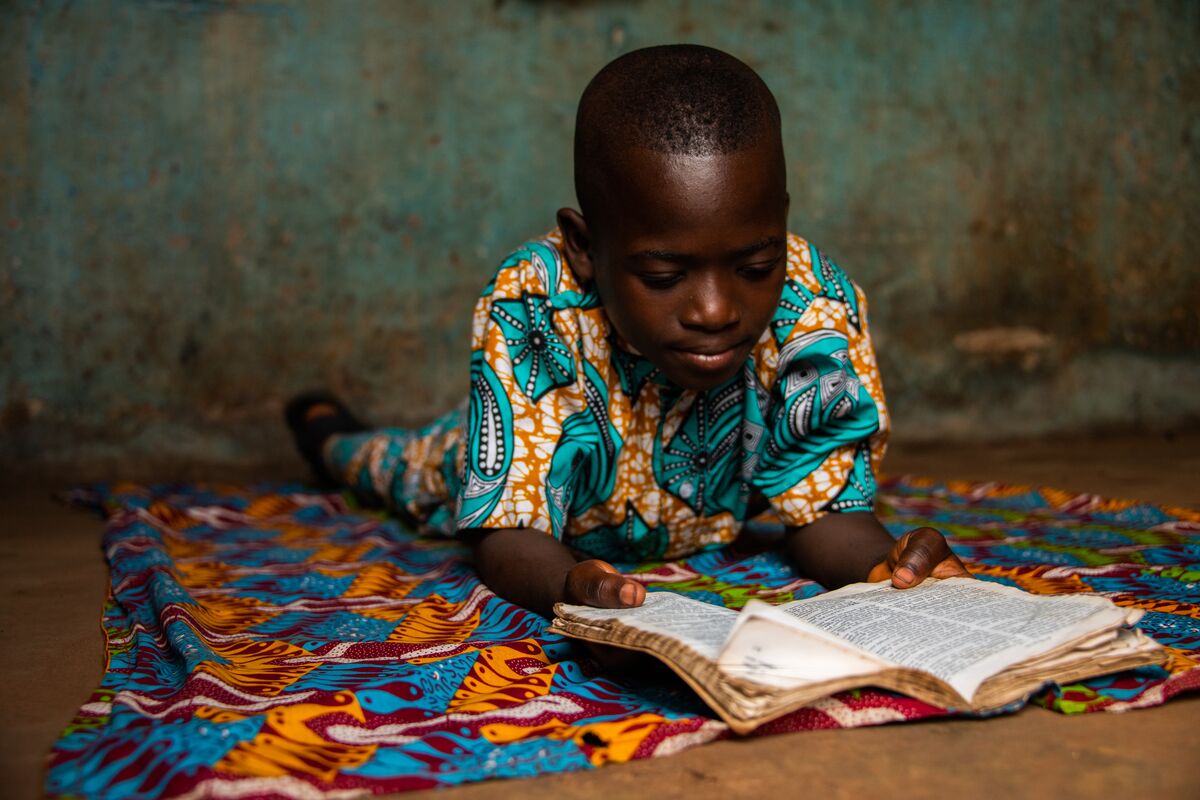
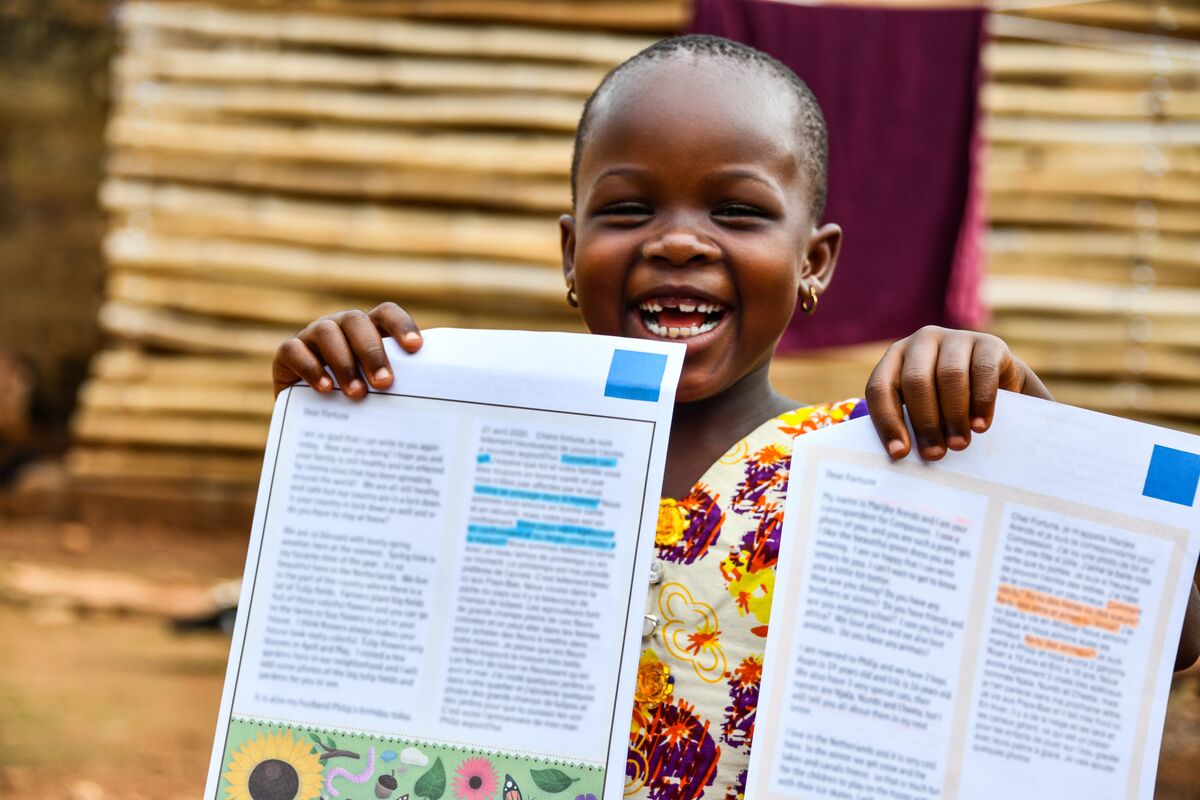
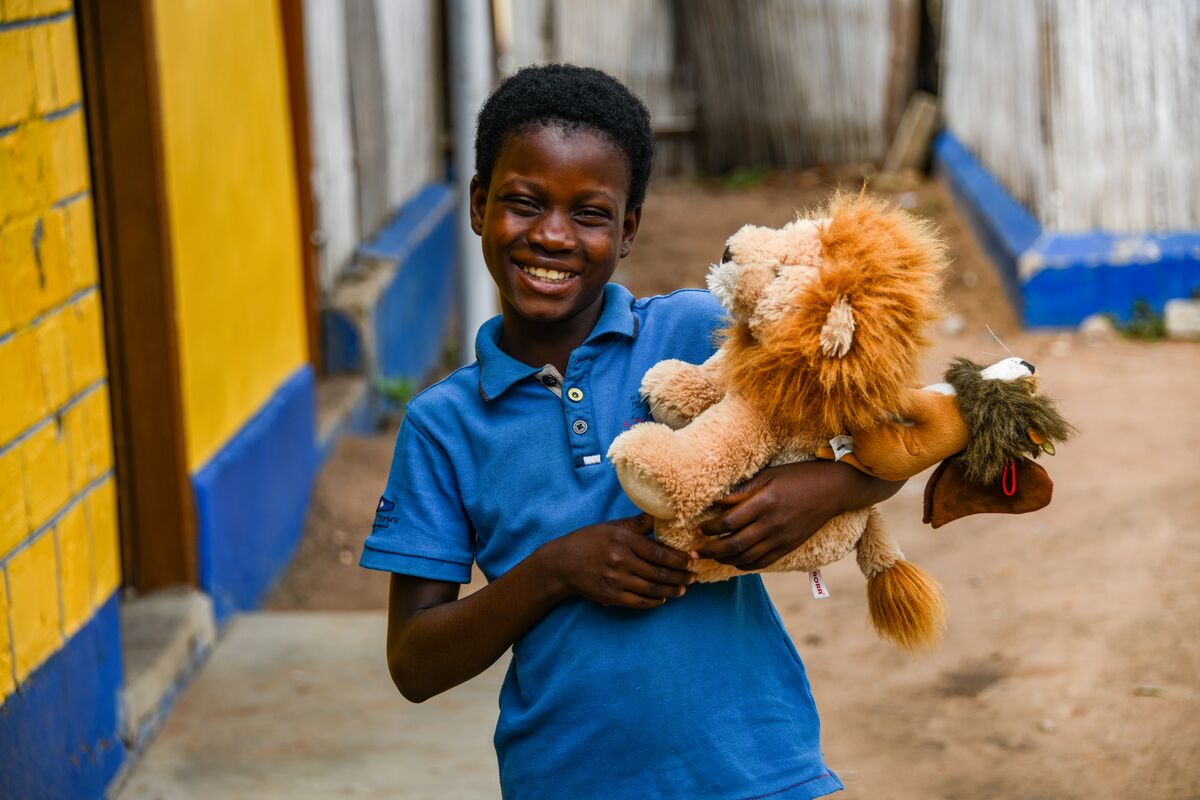
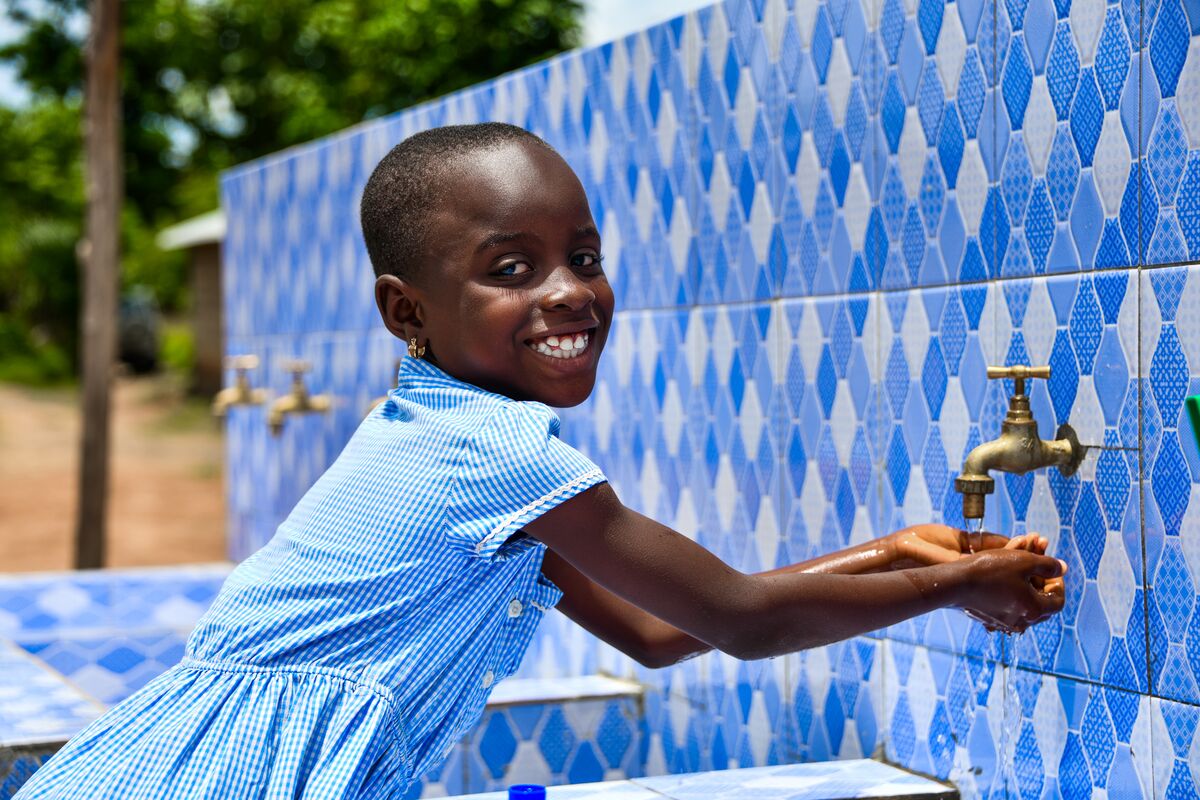
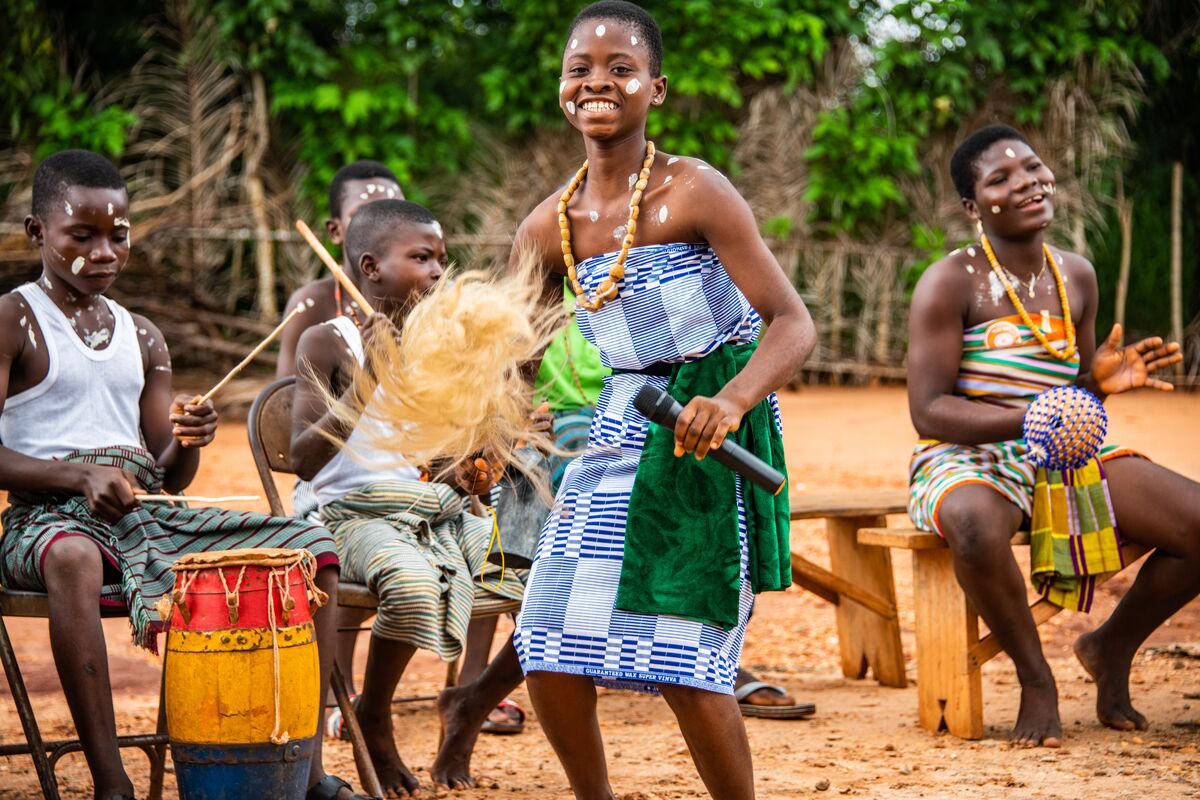
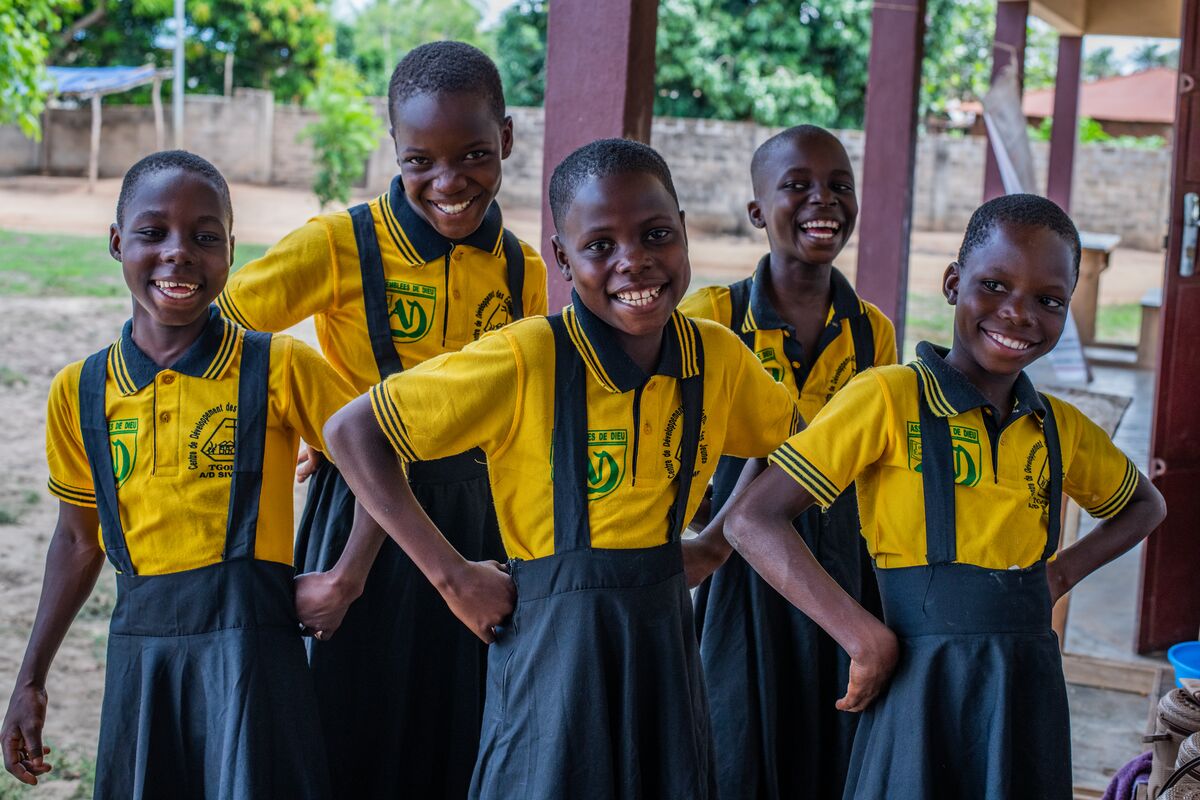
This video was released in July 2022.
If you've been inspired to sponsor a child from Togo, visit our sponsorship page.
Pray with us for:
Support for pastors in Togo as they serve their communities
God’s good and generous provision for all who have lost their jobs
Local churches in Togo as they seek to serve their communities
Music and dance are very important to Togolese culture. Modern artists have embraced Afropop, a mix of African music styles and American pop music.
Child sponsorship with Compassion is a unique opportunity to provide a child with food, clean water, shelter, clothing and medical care.
Official Country Name: Togolese Republic
Capital City: Lomé
Population: More than 8.8 million
Official Languages: French
Life expectancy: Male 61 years, female 62 years
Population with access to safe drinking water: 20%
Infant mortality rate: 43 deaths / 1,000 live births
Percentage of children under the age of 5 underweight: 15.2%
Adult literacy rate: Male 80%, female 55%
Religion: Approximately 42% of the population are Christian, 14% are Muslim and 37% are followers of indigenous beliefs and 7% are of another/unspecified religion or none.
Percentage living on less than $2.15 a day: 28.1%
Source: CIA World Factbook, International Religious Freedom Report, released in 2022 by the Office of International Religious Freedom, U.S. Department of State
Very little is known about the region that is Togo before about 500 years ago. When the first Europeans arrived, tribes including the Ewe, Mina and the Guin had already settled the region. Beginning in the 16th century and continuing for the next 200 years, slave traders raided the region, also known as “The Slave Coast.”
In 1847, German missionaries came to Togo shortly followed by German traders. In 1884, Togoland, as it was called, became a self-supporting colony of Germany. Following World War Two, Togoland became a trust territory of the United Nations. Still split administratively between the United Kingdom and France, residents of the British portion voted to join the British Gold Coast to form the new country of Ghana in December 1956.
During that same year, French Togoland became an autonomous republic within the French union under the leadership of Prime Minister Nicolas Grunitzky. He lost power in 1958, and on 27 April 1960, Togo became an independent nation.
A period of political instability followed, which included a bloodless military coup led by Lt. Col. Étienne Eyadéma. President Eyadéma’s 33-year rule came to a sudden end in February 2005 when he died on board an aeroplane en route to France for treatment for a heart attack. In a military coup-like fashion, power transfer went from father to son. In October 2007, Togo held its first relatively free and fair legislative elections.
Art
Togolese art includes different kinds of textiles and handcrafted items made from marble, gold and silver, alongside traditional masks and wood carvings.
Music
Drums dominate music in Togo with dozens of varieties to choose from, including blekete, grekon, ageche, akpesse, aziboloe, amedjeame, and adamdom. This music is often accompanied by dance, and most songs are sung in the Ewe language.
Language
The official language of Togo is French, although it’s not widely spoken outside of business and government. More common languages include Ewe in the south and Kabiye in the north.
French: Bonjour (Hello, good morning, good afternoon), Je m'appelle... (My name is …), Comment vous-appelez vous? (What is your name?), Quoi de neuf? (What’s new?), Ça va? (How are you?), Adieu (Farewell), Salut (Bye)
Sports and Games
As in much of Africa, football is the most popular sport. However, Togo was a minor player on the world stage until 2006, when the national team, nicknamed Les Eperviers (The Sparrow Hawks), qualified for the World Cup. During the 2008 Olympics in Beijing, Togo won its first Olympic medal when Benjamin Boukpeti, a French-born Togolese canoeist, won the bronze in the Men’s K1 Kayak Slalom.
Typical Foods
The most popular food in Togo is maize, which is made into a porridge called pâtes in French or akume in Ewé. This simple dish is always served with sauces or stews made with vegetables such as okra, ademe and spinach, fish, or meat, like cow skin or large bush rats. Fufu is another popular dish made with yams. Once the yams are cut and peeled, they are boiled until they have the consistency of dough. Like the pâtes, fufu is served with sauces made from popular flavours such as groundnuts, goat and palm nuts.
Primary education is compulsory and free in Togo. Due its history as a French colony, the education system follows the French model of primary, secondary, and higher schooling.
In 2008, the Togolese government abolished all school fees, which helped to increase the enrolment rate to 90%. However, many classrooms are still minimally equipped, most without electricity. There is also a disparity between the education of girls and boys, with 10% fewer girls enrolled in education than boys.
The percentage of children enrolled in secondary school has also improved over the past decade. However, only 41% of the children eligible are enrolled in secondary school. Children in rural communities are much less likely to attend secondary school than their peers in larger cities.
Although the French language is a second or even third language for most children, the country's literacy rate is one of the highest in Africa.
In the capital city of Lomé, there are a number of centres of higher education with colleges of administration, architecture and urban planning alongside the University of Benin.
Source: UNICEF, World Bank
“I wanted to play with my friends, but something always retained me. I was afraid my mother would die,” says Mawulom. Mawulom's mum, Ami, was admitted to hospital after feeling seriously ill for two months. Her legs were swelling and growing increasingly painful. Eventually, she collapsed. Mawulom had been living in fear of losing his mum and was suffering from debilitating anxiety. He couldn’t live a normal childhood, as the fear and worry affected both his mental and physical health. Abraham, Mawulom’s social worker at his Compassion project, noticed a change in his behaviour and paid him a visit at home. Upon discovering Ami’s ill health, he used Compassion intervention funds to pay for emergency surgery and medication for her. They also provided food for the family to eat whilst she was in the hospital. Now Ami is home and gradually getting better. Mawulom is feeling much more positive about life. “All my fear was gone the day my mother was discharged from hospital and arrived home,” he says. “Without the help of the [Compassion] centre, my mother would have died.” Mawulom is grateful not only to his social worker and Compassion project but also to his sponsors. “May God bless my sponsors for their love and care for us. I pray that God rewards them abundantly.”
“I wanted to play with my friends, but something always retained me. I was afraid my mother would die,” says Mawulom. Mawulom's mum, Ami, was admitted to hospital after feeling seriously ill for two months. Her l
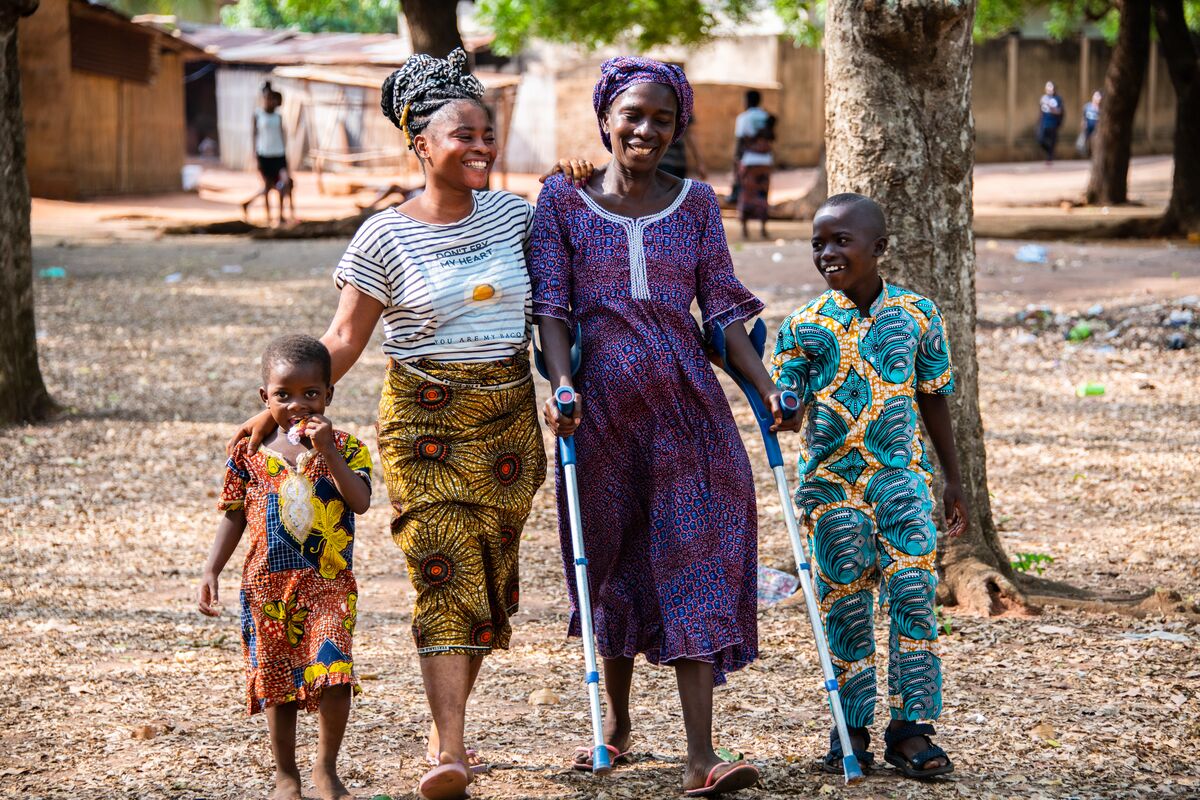
Compassion UK Christian Child Development, registered charity in England and Wales (1077216) and Scotland (SC045059). A company limited by guarantee, Registered in England and Wales company number 03719092. Registered address: Compassion House, Barley Way, Fleet, Hampshire, GU51 2UT.